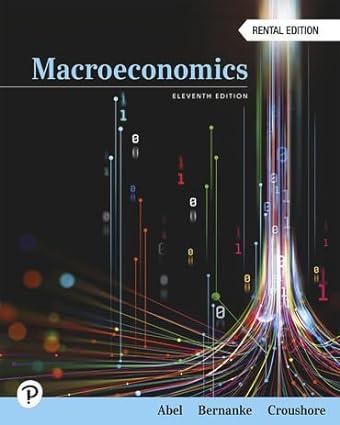In this problem you are asked to analyze the question: By issuing new bonds and using the
Question:
In this problem you are asked to analyze the question: By issuing new bonds and using the proceeds to pay the principal and interest on its old bonds, can government avoid ever repaying its debts?
a. Suppose that nominal GDP is \(\$ 1\) billion and the government has \(\$ 100\) million of bonds outstanding. The bonds are one-year bonds that pay a \(7 \%\) nominal interest rate. The growth rate of nominal GDP is \(5 \%\) per year. Beginning now the government runs a zero primary deficit forever and pays principal and interest on its existing debt by issuing new bonds. What is the current debt-GDP ratio? What will this ratio be after \(1,2,5\), and 10 years? Suppose that, if the debt-GDP ratio exceeds 10 , the public refuses to buy additional government bonds. Will the debt-GDP ratio ever reach that level? Will the government someday have to run a primary surplus to repay its debts, or can it avoid repayment forever? Why?
b. Repeat part (a) for nominal GDP growth of \(8 \%\) per year and a nominal interest rate on government bonds of \(7 \%\) per year.
Step by Step Answer:






